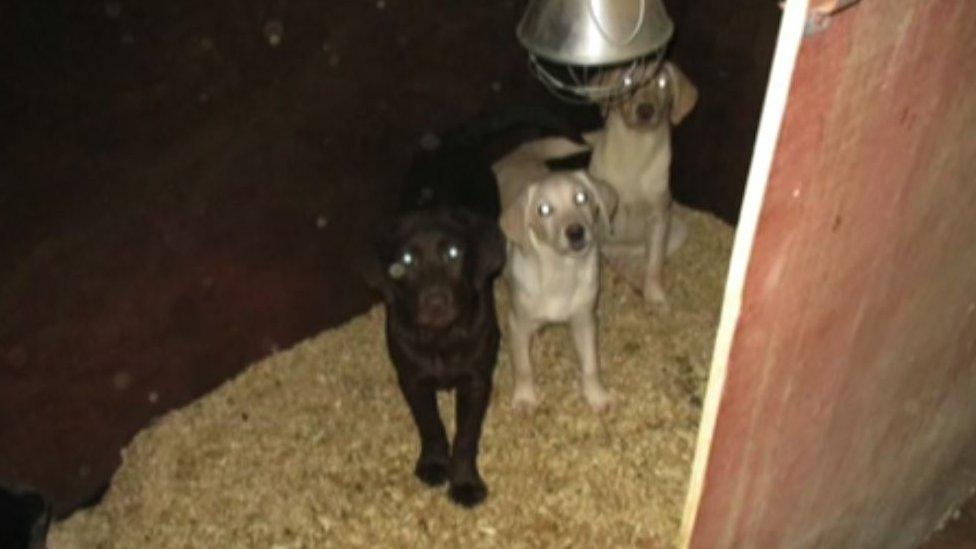Forest of Dean farmer banned from keeping livestock or life
- Published
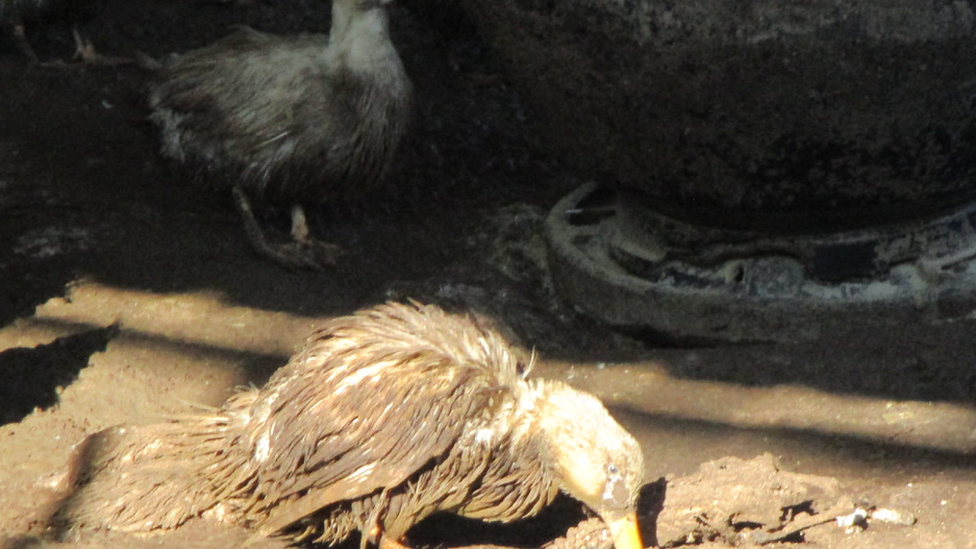
Ducks were found living in mud surrounded by carcasses
A farmer who kept ducks in filthy conditions has been banned from keeping livestock for life.
Inspectors also found cattle wading through slurry to reach food at Anthony Curtis' farm in the Forest of Dean.
Curtis, 59, blamed health issues for not looking after his animals.
He admitted 25 offences when he appeared at Cheltenham Magistrates Court on 2 December. As well as the ban he was given a conditional discharge and ordered to pay £185 in costs.
Following a tip-off, trading standards officers from Gloucestershire County Council visited Kerrin Farm in Lydney in February 2019.
They found around 30 ducks living in cold, damp conditions, surrounded by approximately 60 other bird carcasses.
The birds had to wade through liquid mud to reach drinking water.
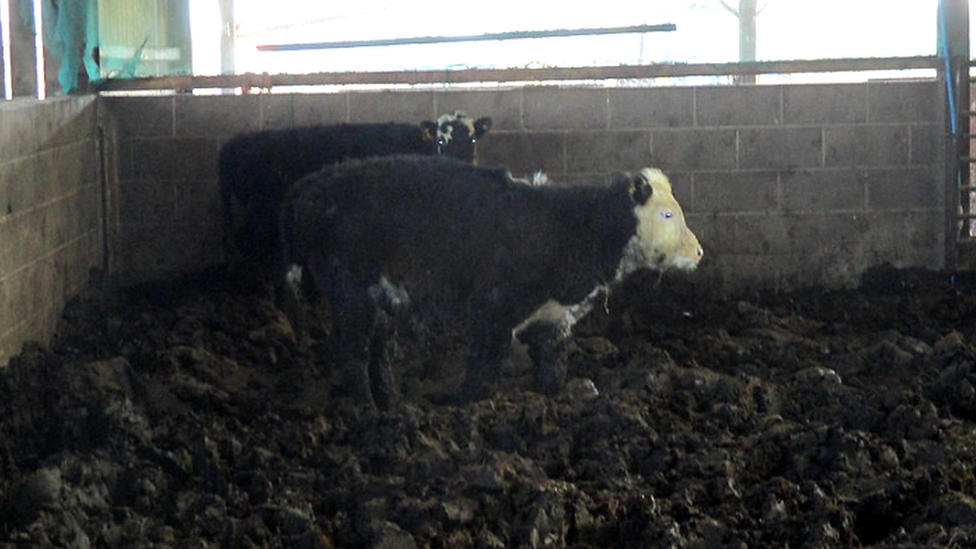
Cows were living in deep mud and being fed mouldy hay
Inspectors found cattle living in deep mud, being fed mouldy hay, and the body of a calf which had not been disposed of.
Pigs, cattle and ducks had nowhere dry to rest and hens were eating from filthy troughs.
Once a vet had visited the site, some of the birds were able to be re-homed.
But on a later visit, more breaches were discovered including cattle being kept in a field containing hazards such as timber with nails sticking out.
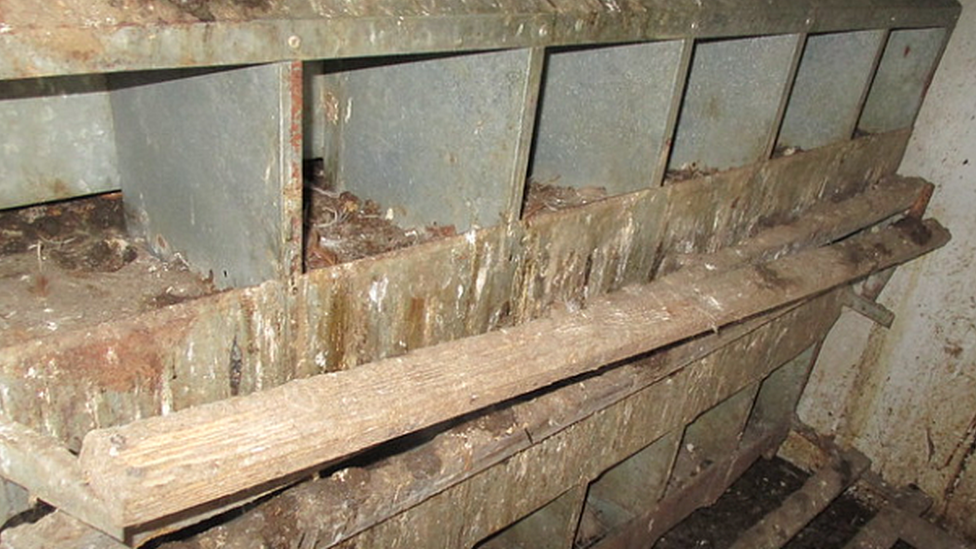
Hens had to lay their eggs in boxes that had not been cleaned in a long time
Ducks were also found eating stale bread waste containing lumps of plastic.
Cabinet member for trading standards at Gloucestershire County Council, Dave Norman, said: "In this case not only did the farmer fail to care properly for his livestock, but on several occasions he also showed little regard for the cleanliness and hygiene of animals which were intended for the human food chain."

Follow BBC West on Facebook, external, Twitter, external and Instagram, external. Send your story ideas to: bristol@bbc.co.uk , external
Related topics
- Published9 October 2020
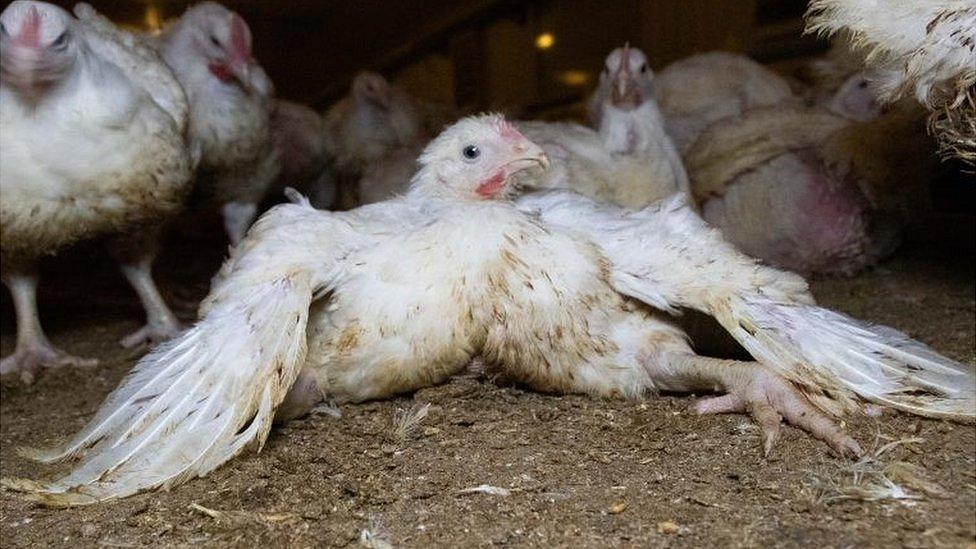
- Published28 February 2020
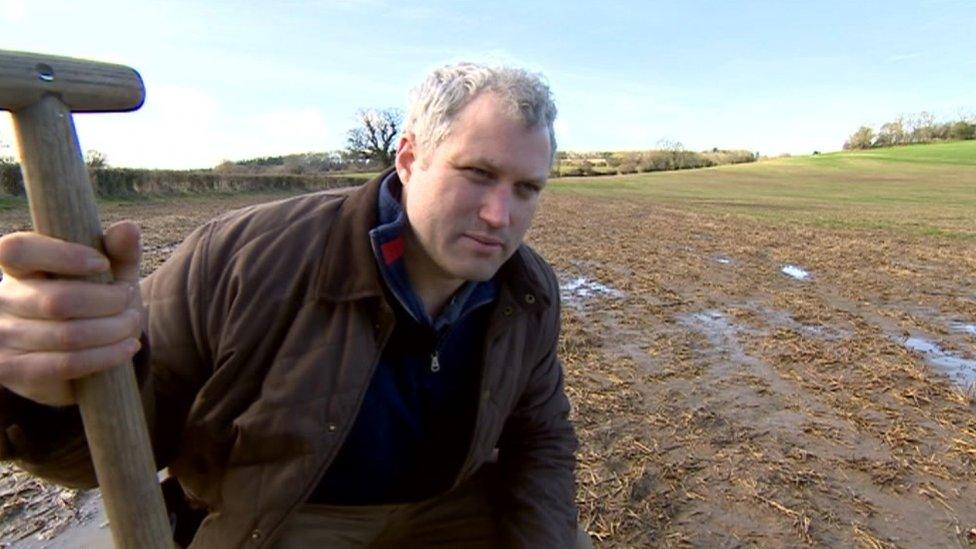
- Published23 January 2020
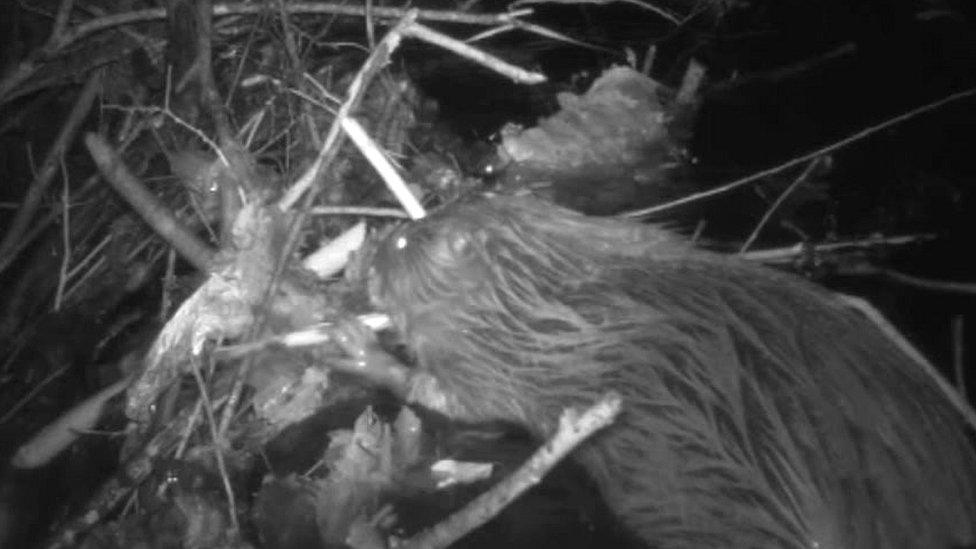
- Published1 July 2019
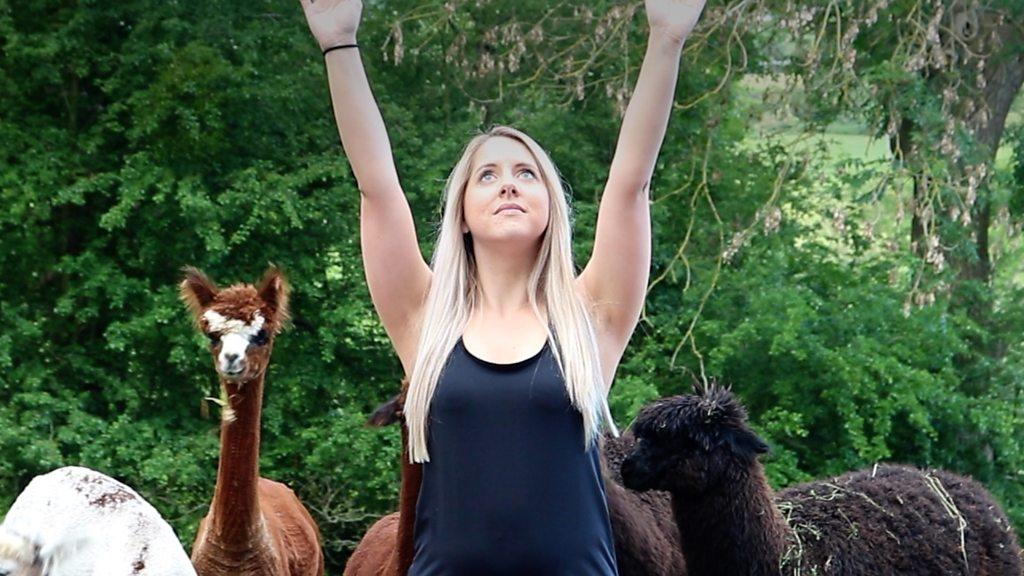
- Published30 November 2018
